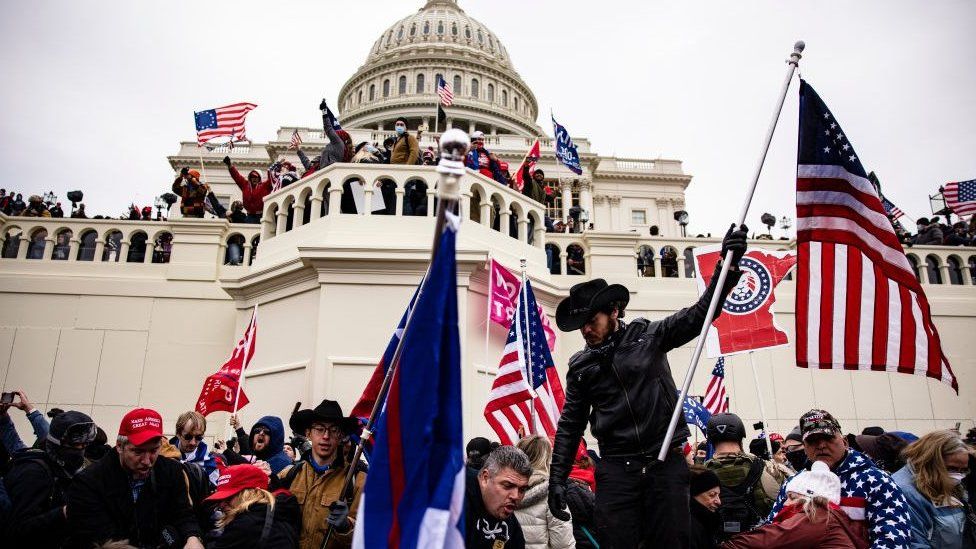Capitol riot: Police chief apologises for pro-Trump riot
- Published

The acting chief of the US Capitol Police has apologised to Congress for not having done enough to prepare for the pro-Trump riot earlier this month.
"The department prepared in order to meet these challenges, but we did not do enough," said Yogananda Pittman, who took over when the ex-chief resigned.
Despite "strong potential for violence" the force did not adequately prepare for a "terrorist attack," she said.
Five people, including a Capitol Police officer, died in the riot.
What did the police chief say?
Chief Pittman was speaking on Tuesday to the House Appropriations Committee, which oversees the police department's funding.
She said the agency was aware that protesters were planning to bring firearms and other weapons to the Capitol two days before the violence on 6 January.
Her force of 1,200 officers on duty that day was "no match" for "the tens of thousands of insurrectionists" who stormed the Capitol, she said.
"The department failed to meet its own high standards as well as yours," she told the committee at the closed door meeting, according to a transcript of her remarks provided to BBC News.
"I am here to offer my sincerest apologies on behalf of the department," added Chief Pittman, who was not yet in charge of the department on the day of the attack.
Two days before the violence, former Capitol Police chief Steven Sund had requested that a state of emergency be declared, she said.
Black activists complain of double standards: ‘We would have been murdered’
Chief Pittman said the Capitol Police Board denied that request and encouraged Mr Sund to contact the National Guard, which she said he did.
What happened in the riot?
At the time, US lawmakers were meeting inside the Capitol to certify Joe Biden's presidential victory.
There was a pro-Trump rally that day on the National Mall, at which the former president spoke.
He repeated unfounded claims that the election was stolen from him, and told those gathered: "If you don't fight like hell you're not going to have a country anymore."
He also told them to protest peacefully but encouraged them to go to the Capitol and have their voices heard.
Thousands of his supporters then made their way to the seat of government, overwhelmed the security and smashed their way into the building.
What were the consequences?
President Trump was impeached by the House of Representatives for incitement and is awaiting trial in the Senate. He could be banned from ever running for office.
Dozens of people have been arrested and charged by the FBI.
Two members of the police board - former House sergeant-at-arms Paul Irving and ex-Senate sergeant-at arms Michael Stenger, have resigned in the wake of the chaos.
The images of violence in the hallowed corridors of government shocked the nation and the world.
They have also led to much soul searching in the US over the state of the nation at the start of a new presidency.
Related Topics
- Published9 January 2021